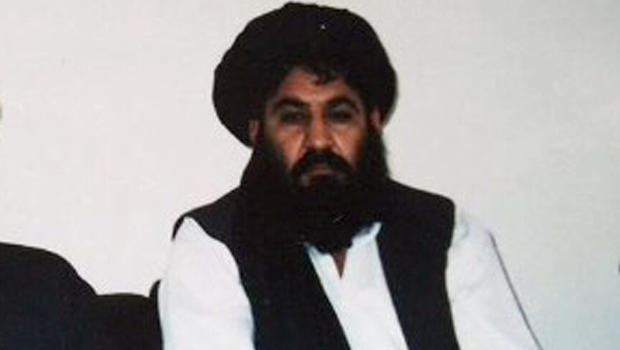Wednesday 25 May 2016 - 15:57
Story Code : 215510
How death of Taliban leader influences Islamabad-Kabul relations?
Pakistan�s Prime Minister Nawaz Sharif, who is currently in London visit, has said that Islamabad could not confirm death of Taliban�s leader.
It is not clear yet if it was Mullah Mansour who was killed in the US drone attack.
Pakistan argues that the American drones carried out the attack in its territory without coordination with Islamabad, and Islamabad did not see their later delivery of information to Pakistan about the operation as a work of coordination.
Nawaz Sharif has blasted the US drone strikes, calling them a breach of Pakistan�s sovereignty.
However, Washington and Afghanistan have welcomed the strike, asserting that they were obliged to fight terrorism inside Pakistan�s territory now that Islamabad failed to contain it on its soil.
Kabul has always accused Islamabad of offering support to the Taliban militants active in Afghanistan. Following huge blasts in Kabul in April, the Afghan President Ashraf Ghani, during an address to the National Assembly- the country�s legislative body- said that he would no longer ask Islamabad�s helping hand in negotiations with Taliban.
�We would adopt a strategy to fight Taliban,� added President Ghani.
The Afghan leaders always insisted that the roots of terrorism and hotbeds of the terrorists should be destroyed in Pakistan�s territory beyond Durand Line- the boundary between Afghanistan and Pakistan. They argue that insecurity of Afghanistan was from abroad, and a product of backing of Taliban by the Pakistani intelligence services.
Afghanistan sees Islamabad�s support for the terrorist group clear to the US, the UN and the region�s states, but Pakistan denies any awareness of presence of terror groups� leaders on its soil, and blames the US and West as the major backers of terrorism in West Asia. Islamabad argues that the West during the past years proved that it implemented double standard in dealing with the extremists.
Islamabad believes that Taliban in Afghanistan is at war with the government, and so Kabul should not count on Islamabad for obliteration of the militant group. It insists that negotiation with Taliban is not only a Pakistani duty, and that Afghanistan should make concessions to the insurgent group in the dialogue to ensure peace and security at home, and show its superiority in the battlefield.
It is worth mentioning that Pakistan holds vital interests in Afghanistan, and once Taliban is removed, no group inside Afghanistan�s political body supports Islamabad.
Pakistan battles Taliban on its soil but supports the group in Afghanistan.
In case of final confirmation of death of Mullah Akhtar Mansour, the Afghan security and political developments as well as the peace process with Taliban would undergo an essential transformation. The incident affects Pakistan-Afghan relations in addition to leaving considerable impacts on Pakistan�s political and security conditions, especially that the Afghans accuse Pakistan of cooperation with the terrorists and argue that Islamabad is to blame for all of Taliban�s blasts and attacks.
Recently the Afghan Deputy Defense Minister Abdul Jabar Qahraman has said that killing of former leader of Al-Qaeda Osama bin Laden, Mullah Mansour and leaders of other terror groups in Pakistan territory was evidence proving that Pakistan was behind all of terror plans in the region and also the world.
Finally, the remarks by Afghan officials and their accusations could fuel tensions between the two neighbors, as they could impede the process of peace negotiations and expand insecurity in Afghanistan.
The rifts over Taliban and terrorism would push aside the two countries� dispute over Durand border area.
The root of conflicts between Islamabad and Kabul is seen to be the Durand Line. Taliban, backed by Islamabad, rises as the major concern of Kabul, and stirs unofficial legalization of Durand Line. But Afghan politicians oppose this, and once Taliban case is closed, the Durand Line dispute re-emerges as Afghanistan�s top issue with Pakistan.
By Alwaght
# Tags











